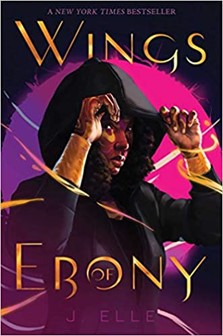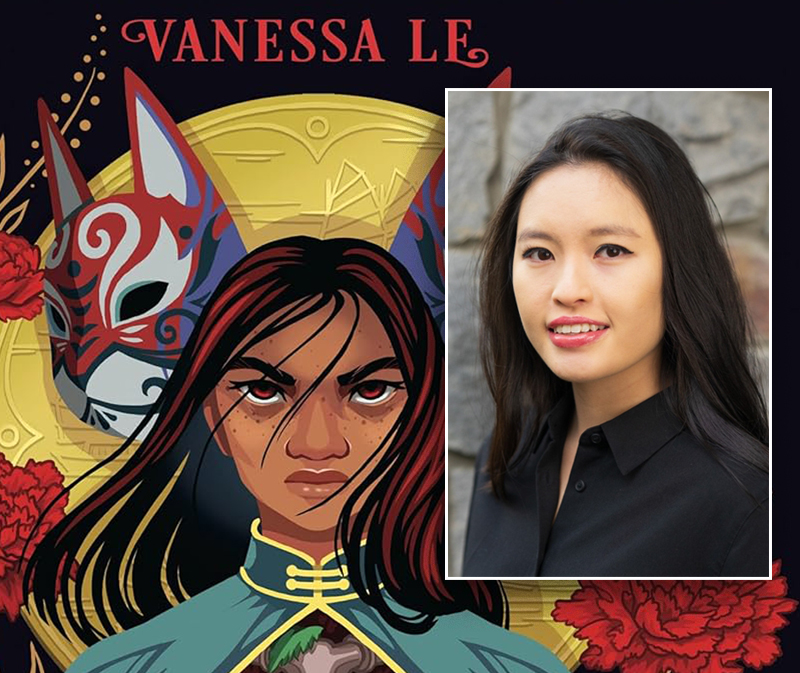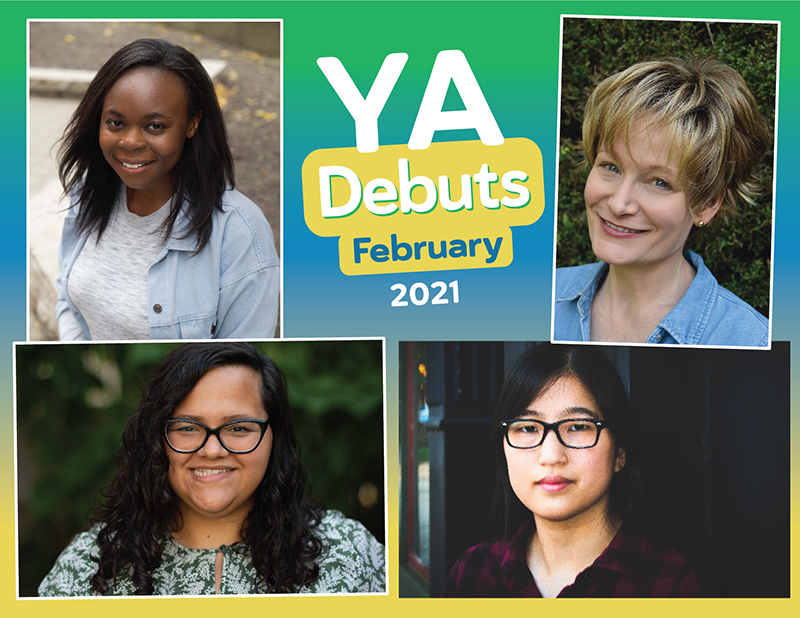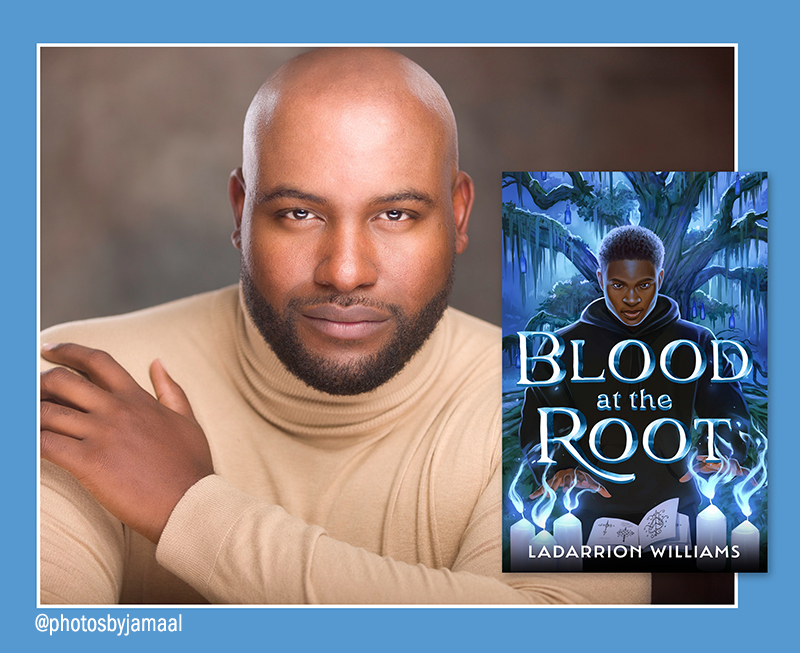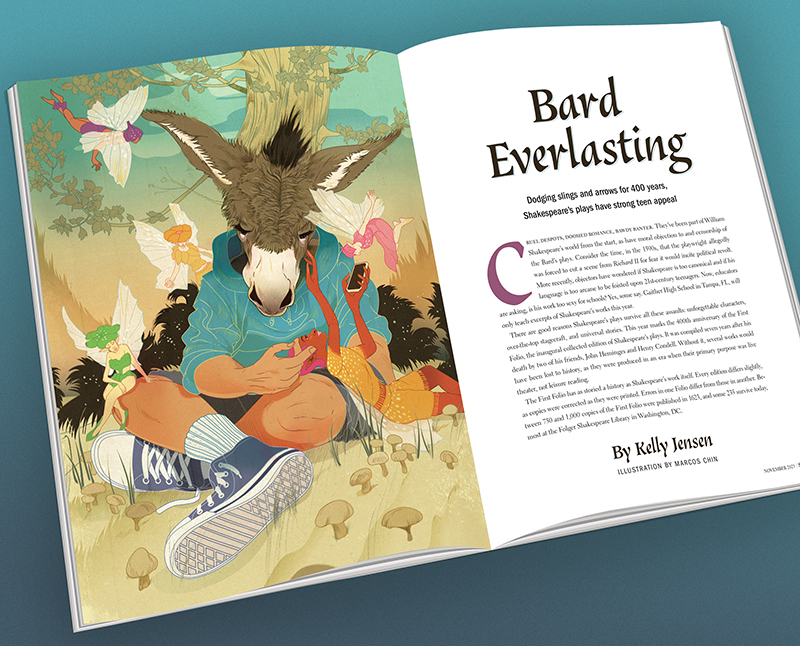Ashes of Gold: An Interview with Author J. Elle, By Lisa Krok
If you loved Wings of Ebony by J Elle, you won’t have to wait much longer for the sequel! Rue returns in Ashes of Gold, releasing January 11, 2022 from Simon & Schuster BFYR. In this conclusion to the duology, Rue makes her final stand to reclaim her people’s stolen magic.
Lisa Krok: Wings of Ebony was one of my favorite reads of 2021, so I could not wait for Ashes of Gold to come out! Did you always plan for this to be a duology, or is this something that evolved?
ADVERTISEMENT
ADVERTISEMENT
J. Elle: Yes, from the beginning I knew it would be at least two books. Though I didn’t fully realize what all Rue would be grappling with in book two until I was in the weeds of book one. I also knew before the story was done that I wanted to give time and space to digging into the magic world and letting the readers learn more about that side of Rue’s heritage. Book two was the perfect canvas for that.
LK: Despite her royal blood,Rue feels that “girls from the hood don’t wear crowns”. How have society and life events shaped these thoughts for her?
J. Elle: Great question. To answer it I’m going to tell you a little bit about me, actually. I once traced my ancestral roots back as far as I could and was able to pinpoint with some accuracy, I’d like to believe, an area in Africa where some of my ancestors were from. To get to those details, I’d had to sift through tons of research on my slave ancestors, the fields in Louisiana that they worked, their migration from one state to the next, the ugly truths of why so many of my ancestors were fair skinned. The search to know where I came from started as a natural curiosity. But it ended bittersweet. It unearthed all kinds of questions I had about what my life might have been like had my ancestors never set foot in America. Those queries will never have answers and yet they sit on me like a weight, a tether to my family’s history that I can’t shake. And yet day to day I, like Rue, am forced to reckon with a post-Reconstruction version of America where 400-year-old wounds still sting because they’ve been left to fester instead of treated to truly heal.
Rue has grown up in a figurative version of our world, where she was ostracized from her magical side of her heritage (albeit for different reasons) without the peripheral awareness that she was magical. Still, she was girded and reared by a community—East Row, modeled after real life Third Ward in Houston, Texas—which toughened her armor, rooted her sense of identity, wrapped her in communal love she didn’t have to earn, shielded her from the notion that she had to prove who she wasn’t before she could prove who she was.
But society wasn’t sure what to do with that sort of Rue. So as society bucked up against her sense of self-worth, Rue bucked back harder, sure of who she was. That’s where you get the stubborn Rue you meet in Wings of Ebony.
Until she stepped on unfamiliar soil, in Ashes of Gold, where she spends a large part of the sequel in her father’s home—Ghizon. There, her steps become less sure. There where she should be more at home than ever, she struggles to find her worthiness. And it reminded me so much of the struggle so many of us deal with now as we reflect on ourheritage.
I imagine many will find Rue’s struggle relatable because our society doesn’t know what to do with strong Black children who know who they are, like Rue. After all, stripping us of our identity was part of the model they tried to use to integrate our ancestors here. It’s still an implicit model in many ways. Ultimately, my hope is that through Ashes of Gold, young Black readers can see in themselves what might have previously felt unimaginable.
LK: In addition to the obvious Black Girl Magic theme, social justice is tackled through a myriad of situations in the book. Rue is surprised to find that in Ghizon, there are different groups within her people that don’t necessarily get along. Can you tell us a bit about the differences in social status and how you created these?
J. Elle: Exploring Rue’s Ghizoni community was really interesting. I wanted to ensure that there wasn’t a perfect picture of a social group because that isn’t realistic, especially for a group of people who’d undergone so much difficulty living in hiding, trying to survive. It was important to me that Rue’s people felt varied and intermingled. I wanted to craft clans within her tribe that depicted different strengths. For example, the Yakanna are strong women warriors with a fierce sisterly like bond. So strong that they won’t even let marriage to someone else come between it. I wanted to illustrate the inspiring beauty and strength of women uplifting women, instead of tearing one another down which modern society so often promotes. I also wanted to explore how our greatest strengths can also be weaknesses if harnessed for the wrong reasons or in the wrong way, or when we lose sight of who we really are like a character in Ashes of Gold does. (No spoilers!! So I won’t say more.) With the Beerchi I wanted to play with this idea that it can be easy to believe things about someone when primed with our own biased perceptions. Again, no spoilers. But I hope each of the clans enable me to take readers on a journey of deeper self-awareness.
LK: Metaphors for both slavery and Indigenous history abound. What would you like teens to take away from this?
J.Elle: I sort of spoke to this earlier, but more pointedly it’s important that children know their history. I did not say Black children. I said children, all of them. We do no favors hiding or glazing over portrayals in history that present an idealized version of how this country or others were founded. We cannot whitewash our past while calling this Nation one founded on truth. The two don’t align. The two work vehemently against each other in fact. Rue learning Ghizon’s true history opened her eyes. Bri learning Ghizon’s true history opened hers as well. The common understanding of their true history doesn’t make Bri a monster, no more than it makes Rue one. However, it does lay a foundation for actual forward-moving progress. I want teens to walk away from these pages with a renewed thirst to know real history. And armed with that truth, I hope it inspires them to work to make the next several decades better.
LK: One of the powerful quotes in Ashes of Gold that stood out to me was when Julius says, “Still though, being passively aware of something and doing nothing don’t make you innocent”. This often happens when marginalized people are being oppressed in various forms. How would you encourage teens that are bystanders to speak up and stand up for their marginalized peers?
J.Elle: The first thing to realize is that whatever they think the consequences are for them, they are much higher for the marginalized person involved. Whatever you risk putting on the line to actively ally against an injustice, I can guarantee you the marginalized person is risking more. If you struggle with that truth, then let’s step back—are you ally? Recognizing your relative privilege as we see Bri do through the Wings of Ebony duology is the critical first step in allyship. Once you see that someone else has more on the line than you, you have the capacity to recognize the power you have to influence change.
ADVERTISEMENT
ADVERTISEMENT
And second, talk to other allies. Don’t put that work on the shoulders of a marginalized person. Seek out resources yourself. Talk to other people you see doing things to positively impact the lives of marginalized communities and ask them how you can be involved. Voice your earnest fears you have to them. (Because the root of not doing anything for many is fear, I really believe.) Ask questions. Let your peers walk you through their processes and reasoning of how they’ve come to be such a vocal ally. People outside of marginalized communities need to look at their peers who are doing the right thing for direction.
LK: This is so powerful and important! Thank you so much for your time in talking with us about your work and candid insights for teens. Readers, teachers, and librarians: find more about J. Elle on her website at www.wingsofebony.com or https://authorjelle.com/ .
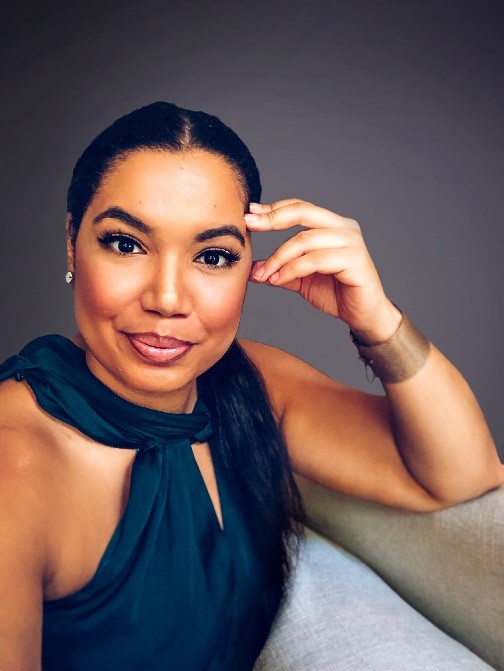
J.Elle is a New York Times bestselling author of young adult and middle-grade fantasy fiction. She is best known for her debut novel, Wings of Ebony. Her work has been translated into three languages. The former educator and first-generation college student credits her nomadic lifestyle and humble inner-city beginnings as inspiration for her novels. When she’s not writing, Elle can be found mentoring aspiring authors, binging reality TV, loving on her three littles, or cooking up something true to her Southern roots. More at www.authorjelle.com

Lisa Krok, MLIS, MEd, is the Adult and Teen Services Manager at Morley Library and a former teacher in Cleveland, Ohio. She is the author of Novels in Verse for Teens: A Guidebook with Activities for Teachers and Librarians (ABC-CLIO). She reviews YA for School Library Journal, blogs for Teen Librarian Toolbox, and her passion is reaching marginalized teens and reluctant readers through young adult literature. Lisa has served on both the Best Fiction for Young Adults and Quick Picks for Reluctant Reader’s teams. She can be found on Twitter @readonthebeach.
Filed under: Uncategorized
About Karen Jensen, MLS
Karen Jensen has been a Teen Services Librarian for almost 32 years. She created TLT in 2011 and is the co-editor of The Whole Library Handbook: Teen Services with Heather Booth (ALA Editions, 2014).
ADVERTISEMENT
ADVERTISEMENT
SLJ Blog Network
Newbery/Caldecott 2026 Spring Check-In
Remember (the) Maine: A Stroll Around Kittybunkport with Scott Rothman
5 Unlimited Access Digital Comics to Boost K–8 Reading | Sponsored
When Book Bans are a Form of Discrimination, What is the Path to Justice?
ADVERTISEMENT


